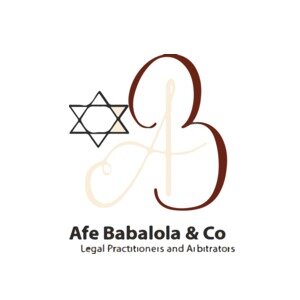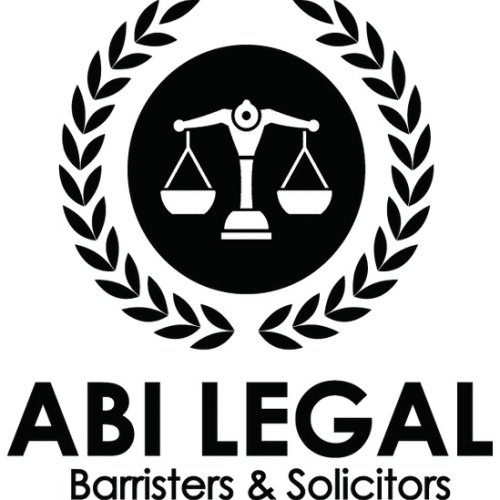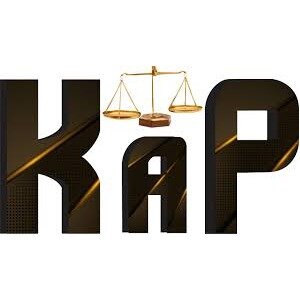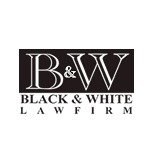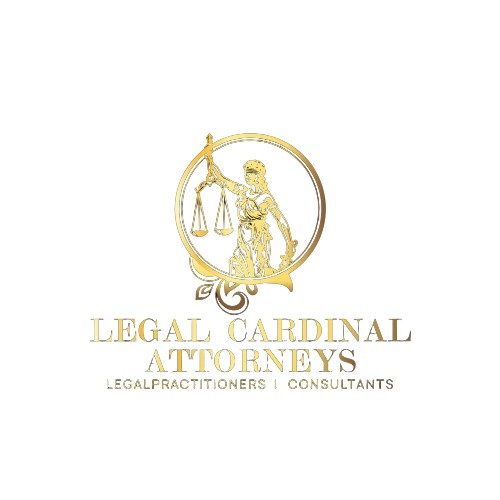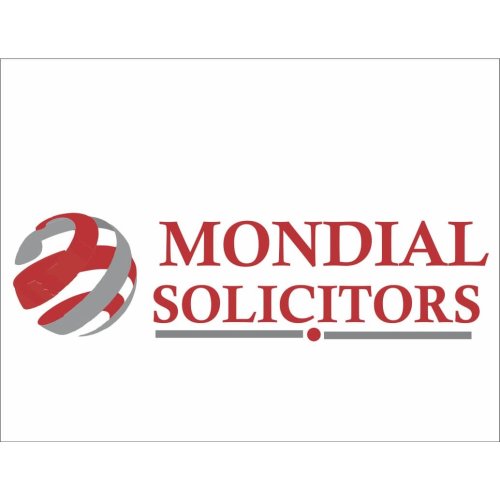Best Sanctions & Export Controls Lawyers in Ibadan
Share your needs with us, get contacted by law firms.
Free. Takes 2 min.
List of the best lawyers in Ibadan, Nigeria
About Sanctions & Export Controls Law in Ibadan, Nigeria
Sanctions and export controls are legal measures put in place by the government to regulate or restrict trade and financial dealings with certain countries, entities, or individuals. In Ibadan, Nigeria, these laws are primarily aimed at promoting national security, protecting economic interests, and fulfilling international obligations. They impact both local businesses and individuals involved in international trade, financial transactions, or dealing with dual-use items (goods with both civilian and military applications). Understanding these laws is crucial to avoid penalties and ensure compliance when conducting any activity that involves crossing Nigerian borders with goods, technology, or funds.
Why You May Need a Lawyer
There are several situations where seeking legal advice on sanctions and export controls in Ibadan may be essential. These include:
- If you operate a company engaged in importing or exporting goods, especially those considered sensitive or dual-use.
- If your business seeks to initiate or maintain trade relationships with countries or entities listed under national or international sanctions.
- If you have received a warning or notice from regulatory authorities regarding potential violations of export control regulations.
- If you wish to understand your obligations under Nigerian laws or relevant United Nations, African Union, or ECOWAS sanctions.
- If you plan to export technology, software, or intellectual property that may have strategic significance.
- If your assets have been frozen or transactions blocked due to suspected sanctions breaches.
- If you are facing criminal or civil penalties for non-compliance with sanctions or export controls.
A qualified lawyer in Ibadan can help navigate these complex regulations, represent your interests before authorities, and provide guidance for lawful business operations.
Local Laws Overview
Sanctions and export control laws in Ibadan are enforced at the federal level, but understanding their local application is essential. Key legislation and regulatory authorities include:
- Nigerian Customs and Excise Management Act - Governs the export and import of goods into and out of Nigeria, establishing procedures for declarations, inspections, and prohibitions.
- Money Laundering (Prohibition) Act - Restricts certain financial dealings and imposes reporting obligations, especially where international sanctions apply.
- Central Bank of Nigeria (CBN) Regulations - Issues circulars on banned goods, sanctioned entities, and directs financial institutions to freeze accounts under specific circumstances.
- United Nations and African Union Domestic Implementation - Nigeria is obligated to implement international sanctions, including those relating to arms embargoes, terrorist financing, and trade restrictions.
- ECOWAS Protocols - Regional sanctions may also be enforced within member states, including Nigeria.
At the local level in Ibadan, the Nigerian Customs Service, law enforcement agencies, and designated banks work together to monitor compliance. Non-compliance can result in confiscation of goods, financial penalties, criminal prosecution, and reputational harm.
Frequently Asked Questions
What are sanctions and export controls?
Sanctions are legal restrictions imposed by the government on certain countries, organizations, or individuals, often for political, security, or human rights reasons. Export controls are regulations that govern the transfer of certain items, technology, or services out of Nigeria to ensure national security and compliance with international agreements.
Who enforces sanctions and export controls in Ibadan?
Enforcement is carried out by the Nigerian Customs Service, Central Bank of Nigeria, Nigerian Financial Intelligence Unit, law enforcement agencies, and, when applicable, state-level task forces.
What goods are typically subject to export controls?
Dual-use items (those with both civilian and military uses), certain chemicals, technology, arms, and items subject to international treaties or embargoes are commonly controlled. A lawyer can advise you on specific goods and categories.
Are there penalties for breaching sanctions or export controls?
Yes, breaches can result in seizure of goods, fines, imprisonment, restrictions on business activities, asset freezes, and reputational damage.
Can individuals as well as businesses be targeted by sanctions?
Yes, both individuals and legal entities can be subject to sanctions, especially if they are found to be facilitating or directly involved in prohibited transactions.
Do sanctions and export controls only apply to physical goods?
No, they also apply to technology, software, financial transactions, and intellectual property. Even providing services or advice can sometimes constitute a violation.
How do I know if my business partner is on a sanctions list?
Sanctions lists are published by various authorities, including the Central Bank of Nigeria and international bodies. Due diligence and screening processes are essential, and a lawyer can assist you with checks.
What should I do if I suspect a sanctions violation?
Contact a qualified lawyer immediately. Cease the relevant activity and gather documentation. Prompt legal advice can help manage the risk of penalties or prosecution.
Can I apply for a license or exemption to export controlled goods?
Yes, it may be possible to obtain licenses or permits in certain situations. An experienced lawyer can guide you through the application process and help ensure compliance with all requirements.
How often do sanctions and export control laws change?
These laws are subject to frequent review both locally and internationally. Changes may be implemented quickly in response to political or security developments, so ongoing legal compliance is vital.
Additional Resources
If you require more information or wish to confirm your compliance, the following resources can be helpful:
- Nigerian Customs Service - For rules and updates on import-export restrictions
- Central Bank of Nigeria - For financial regulations, sanctions lists, and circulars
- Nigerian Export Promotion Council - Guidance for legitimate exporters
- Nigerian Financial Intelligence Unit - For queries related to money laundering and financial sanctions
- Nigerian Bar Association (Ibadan Branch) - For referrals to qualified legal practitioners in sanctions and export controls
- Chamber of Commerce, Ibadan - For business-related queries, export requirements, and compliance support
Next Steps
If you believe you need legal advice regarding sanctions and export controls in Ibadan, take the following steps:
- Gather all documents related to imports, exports, or transactions under review
- List any relevant communications with banks, customs, or government agencies
- Contact a qualified lawyer with experience in sanctions and export controls
- Attend a consultation to discuss your situation in detail
- Follow professional guidance to resolve issues, apply for licenses, or respond to investigations
Acting early reduces potential risks and helps ensure your business or personal interests remain protected under Nigerian law.
Lawzana helps you find the best lawyers and law firms in Ibadan through a curated and pre-screened list of qualified legal professionals. Our platform offers rankings and detailed profiles of attorneys and law firms, allowing you to compare based on practice areas, including Sanctions & Export Controls, experience, and client feedback.
Each profile includes a description of the firm's areas of practice, client reviews, team members and partners, year of establishment, spoken languages, office locations, contact information, social media presence, and any published articles or resources. Most firms on our platform speak English and are experienced in both local and international legal matters.
Get a quote from top-rated law firms in Ibadan, Nigeria — quickly, securely, and without unnecessary hassle.
Disclaimer:
The information provided on this page is for general informational purposes only and does not constitute legal advice. While we strive to ensure the accuracy and relevance of the content, legal information may change over time, and interpretations of the law can vary. You should always consult with a qualified legal professional for advice specific to your situation.
We disclaim all liability for actions taken or not taken based on the content of this page. If you believe any information is incorrect or outdated, please contact us, and we will review and update it where appropriate.




